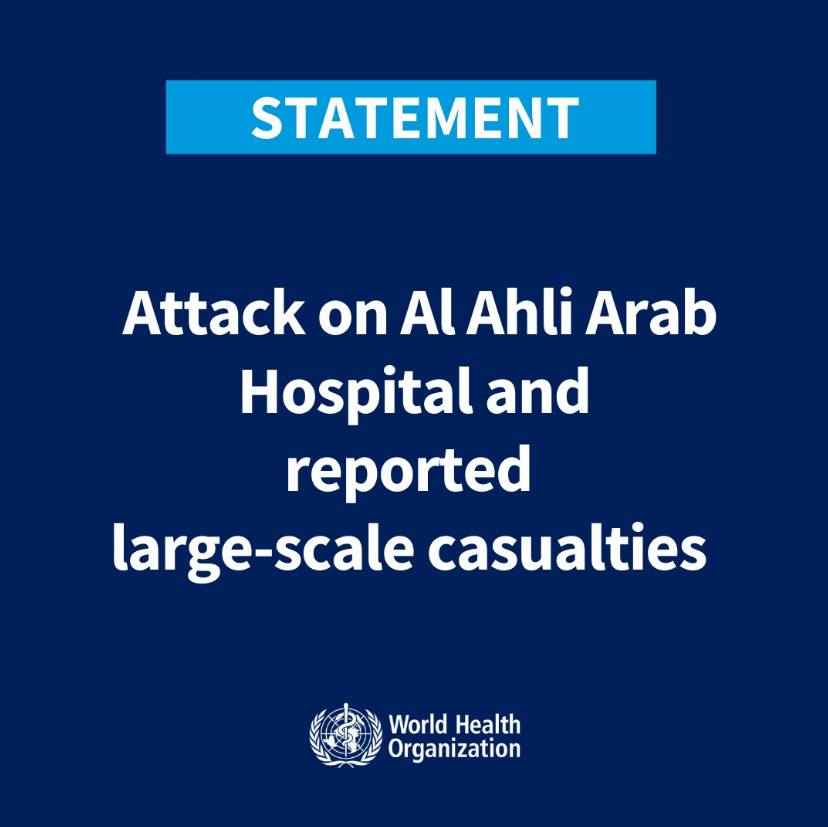UNFPA, UNICEF and WHO Regional Directors call for immediate action to halt attacks on health care in Gaza
Statement by Ms. Laila Baker, UNFPA Arab States Regional Director; Ms. Adele Khodr, UNICEF Regional Director for the Middle East and North Africa; Dr. Ahmed Al-Mandhari, WHO Regional Director for the Eastern Mediterranean
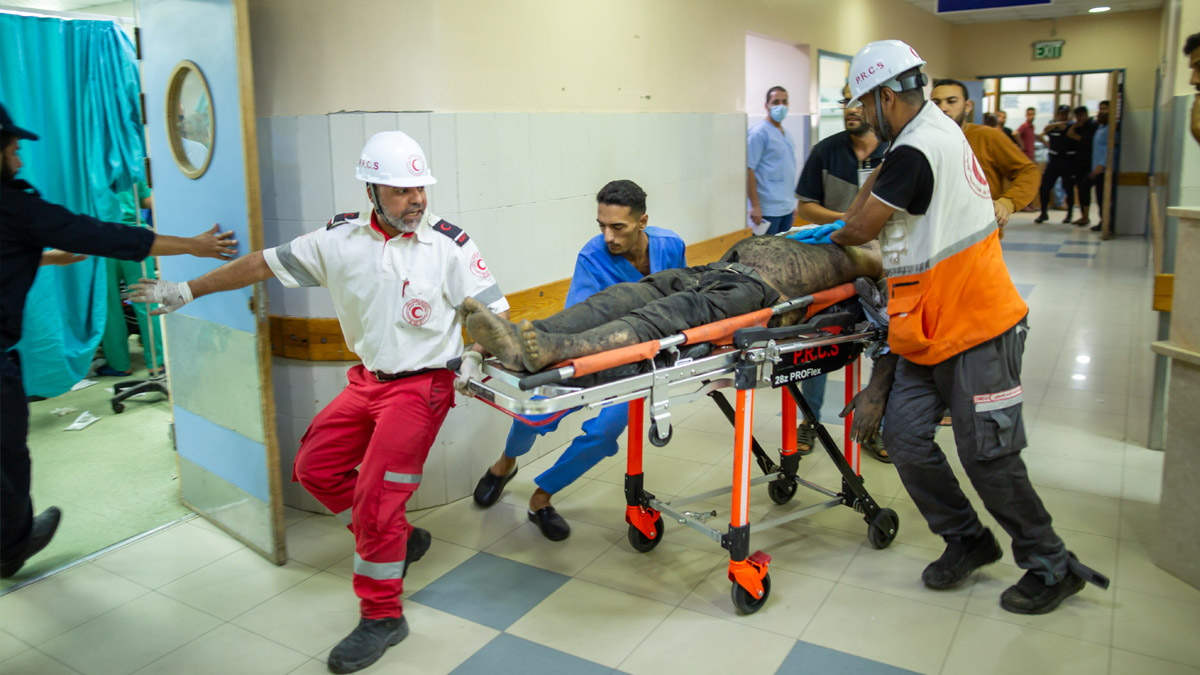
12 November 2023, Cairo/Amman — The regional directors of UNFPA, UNICEF and WHO call for urgent international action to end the ongoing attacks on hospitals in Gaza.
We are horrified at the latest reports of attacks on and in the vicinity of Al-Shifa Hospital, Al-Rantissi Naser Paediatric Hospital, Al-Quds Hospital, and others in Gaza city and northern Gaza, killing many, including children. Intense hostilities surrounding several hospitals in northern Gaza are preventing safe access for health staff, the injured, and other patients.
Premature and new-born babies on life support are reportedly dying due to power, oxygen, and water cuts at Al-Shifa Hospital, while others are at risk. Staff across a number of hospitals are reporting lack of fuel, water and basic medical supplies, putting the lives of all patients at immediate risk.
Over the past 36 days, WHO has recorded at least 137 attacks on health care in Gaza, resulting in 521 deaths and 686 injuries, including 16 deaths and 38 injuries of health workers on duty.
Attacks on medical facilities and civilians are unacceptable and are a violation of International Humanitarian and Human Rights Law and Conventions. They cannot be condoned. The right to seek medical assistance, especially in times of crisis, should never be denied.
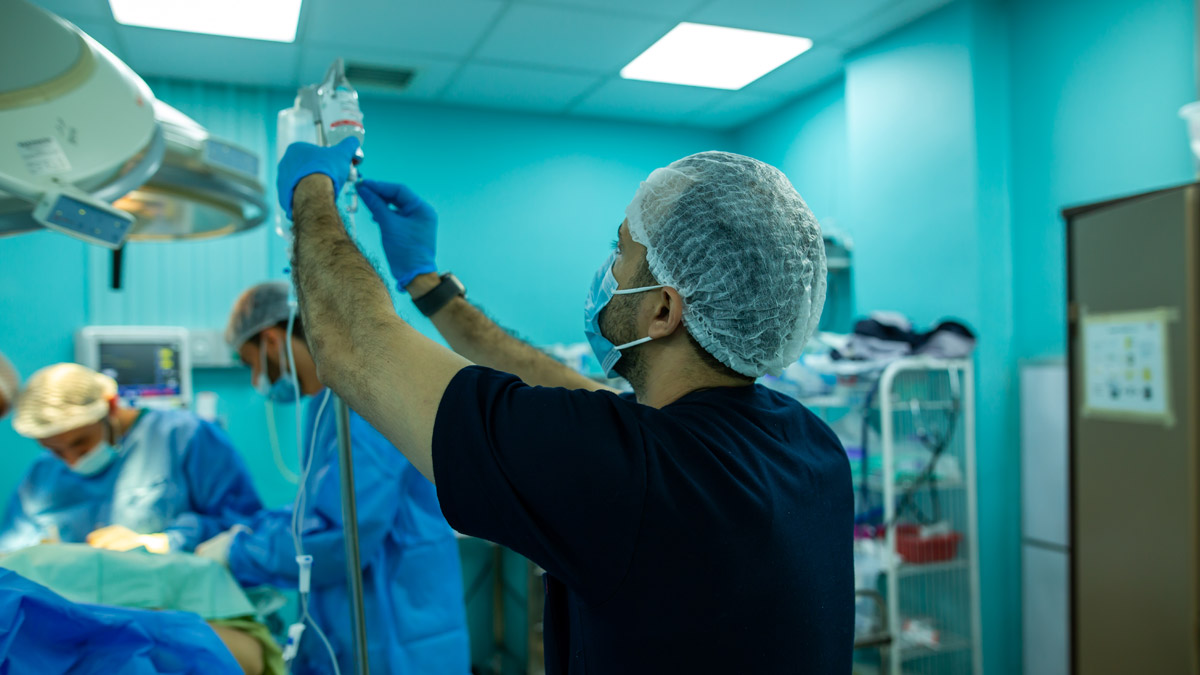
More than half of the hospitals in the Gaza Strip are closed. Those still functioning are under massive strain and can only provide very limited life-saving surgeries and intensive care services. Photo credit: WHO
More than half of the hospitals in the Gaza Strip are closed. Those still functioning are under massive strain and can only provide very limited emergency services, lifesaving surgery and intensive care services. Shortages of water, food, and fuel are also threatening the wellbeing of thousands of displaced people, including women and children, who are sheltering in hospitals and their surrounds.
The world cannot stand silent while hospitals, which should be safe havens, are transformed into scenes of death, devastation, and despair. Decisive international action is needed now to secure an immediate humanitarian ceasefire and prevent further loss of life, and preserve what’s left of the health care system in Gaza. Unimpeded, safe and sustained access is needed now to provide fuel, medical supplies and water for these lifesaving services. The violence must end now.
Related links
WHO loses communication with contacts in Al-Shifa Hospital in Gaza amid reports of attacks
Children with cancer evacuated from Gaza for treatment to Egypt and Jordan
Risk of disease spread soars in Gaza as health facilities, water and sanitation systems disrupted
Attacks on health care in Gaza Strip unacceptable, says WHO
WHO welcomes decision by Egypt to receive patients from Gaza Strip
WHO health supplies move towards Gaza
Joint statement by UNDP, UNFPA, UNICEF, WFP and WHO on humanitarian supplies crossing into Gaza
Lifesaving WHO health supplies land in Egypt for people-in-need in Gaza
WHO pleads for immediate reversal of Gaza evacuation order to protect health and reduce suffering
Hospitals in the Gaza Strip at a breaking point, warns WHO
As Gaza’s health system disintegrates, WHO calls for safe passage of fuel, supplies for health facilities
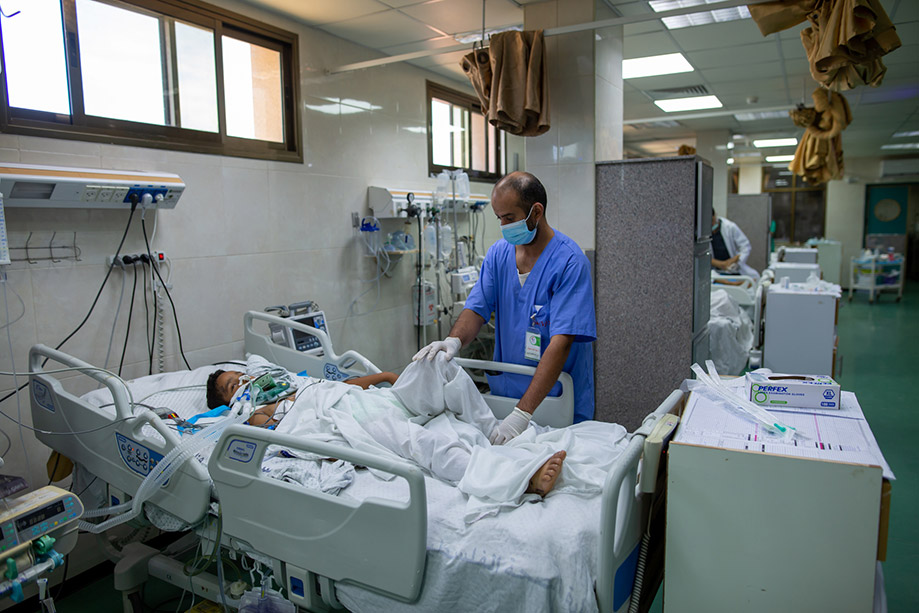
24 October 2023 – WHO remains unable to distribute fuel and essential, life-saving health supplies to major hospitals in northern Gaza due to lack of security guarantees. WHO calls for an immediate humanitarian ceasefire so health supplies and fuel can be delivered safely throughout the Gaza Strip.
Some of the facilities waiting for WHO supplies and fuel in northern Gaza include Al-Shifa hospital, where bed occupancy is already close to 150%. Last night, the Indonesian Hospital was forced to shut down some critical services due to lack of fuel, and is now running with limited functionality. The Turkish Friendship Hospital, the only oncology hospital in the Gaza Strip, remains partially functional due to lack of fuel, putting around 2000 cancer patients at risk.
In addition to the hospitals that have had to close due to damage and attacks, six hospitals across the Gaza Strip have already shut down due to lack of fuel. Unless vital fuel and additional health supplies are urgently delivered into Gaza, thousands of vulnerable patients risk death or medical complications as critical services shut down due to lack of power. These include 1000 patients dependent on dialysis, 130 premature babies who need a range of care, and patients in intensive care or requiring surgery who depend on a stable and uninterrupted supply of electricity to stay alive.
Yesterday, WHO, with support from UNRWA, delivered 34,000 liters of fuel to four major hospitals in southern Gaza and the Palestine Red Crescent Society to sustain its ambulance services. However, this is only enough to keep ambulances and critical hospital functions running for a little over 24 hours.
Some of WHO’s medicines and health supplies have already been delivered to four key hospitals in southern Gaza, as well as to the Palestine Red Crescent Society for distribution to two of its health facilities and ambulance crews. WHO teams delivering the supplies say health staff were so relieved to have replenishments, they took boxes of supplies off the trucks and straight into operating theatres, where doctors have been performing surgeries without anesthesia or other basic surgical supplies.
For people in the Gaza Strip, the situation is desperate. It will become catastrophic without the safe and continuous passage of fuel and health supplies, and additional humanitarian assistance. WHO reiterates its calls for an immediate humanitarian ceasefire for the safe delivery of health supplies and fuel throughout the Gaza Strip.
Related links
WHO health supplies move towards Gaza
Joint statement by UNDP, UNFPA, UNICEF, WFP and WHO on humanitarian supplies crossing into Gaza
Lifesaving WHO health supplies land in Egypt for people-in-need in Gaza
WHO pleads for immediate reversal of Gaza evacuation order to protect health and reduce suffering
Hospitals in the Gaza Strip at a breaking point, warns WHO
October 2023 emergency situation reports
WHO health supplies move towards Gaza
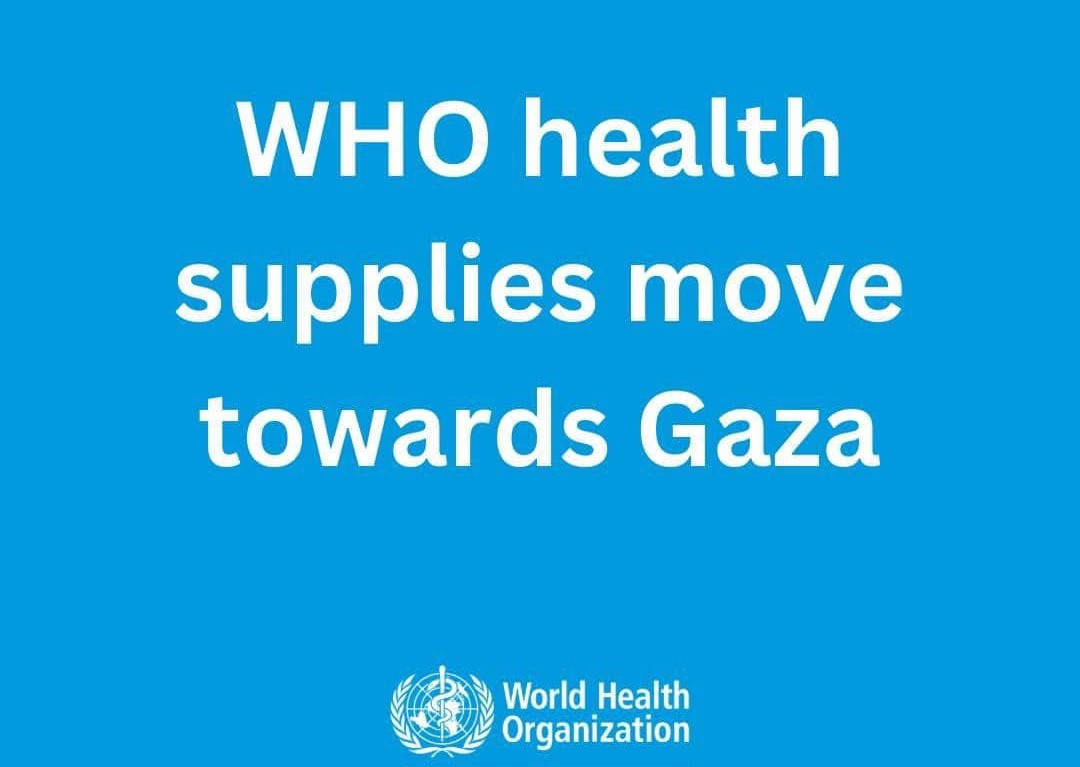
21 October 2023, Cairo - The supplies include trauma medicines and supplies for 1200 people and portable trauma bags for on-the-spot stabilization of up to 235 injured people. They also include chronic diseases medicines and treatments for 1500 people and basic essential medicines and health supplies for 300,000 people for three months. WHO is working with the Egyptian and Palestine Red Crescent societies to ensure the safe passage of these critical supplies and their delivery to hospitals and health facilities. Inside Gaza, hospitals have already reached breaking point due to shortages and the depletion of medicines and medical supplies.
These supplies are a lifeline for severely injured people or those battling chronic illnesses, who have endured a harrowing two weeks of limited access to care and severe shortages of medicines and medical supplies. WHO calls for the protection of humanitarian aid teams in Gaza as they work to ensure the safe delivery of these supplies to where they are most needed. The supplies currently heading into Gaza will barely begin to address the escalating health needs as hostilities continue to grow. A second plane landed in Al-Arish from the United Arab Emirates yesterday carrying humanitarian supplies donated by IOM, UNICEF, the Emirati Red Crescent, and WHO.
WHO supplies include surgical instruments and equipment for 1000 people, as well as tents and water tanks. Another plane carrying WHO supplies is due to land in Al-Arish later this morning. WHO supplies on these flights include medicines, surgical supplies and instruments, infusions, disinfectant, antibiotics, water tanks, and tents. With more supplies for Gaza expected to land in Egypt over the coming days, WHO calls for sustained and uninterrupted humanitarian access through the Rafah border crossing.
WHO statement on attack on Al Ahli Arab Hospital in Gaza
rea